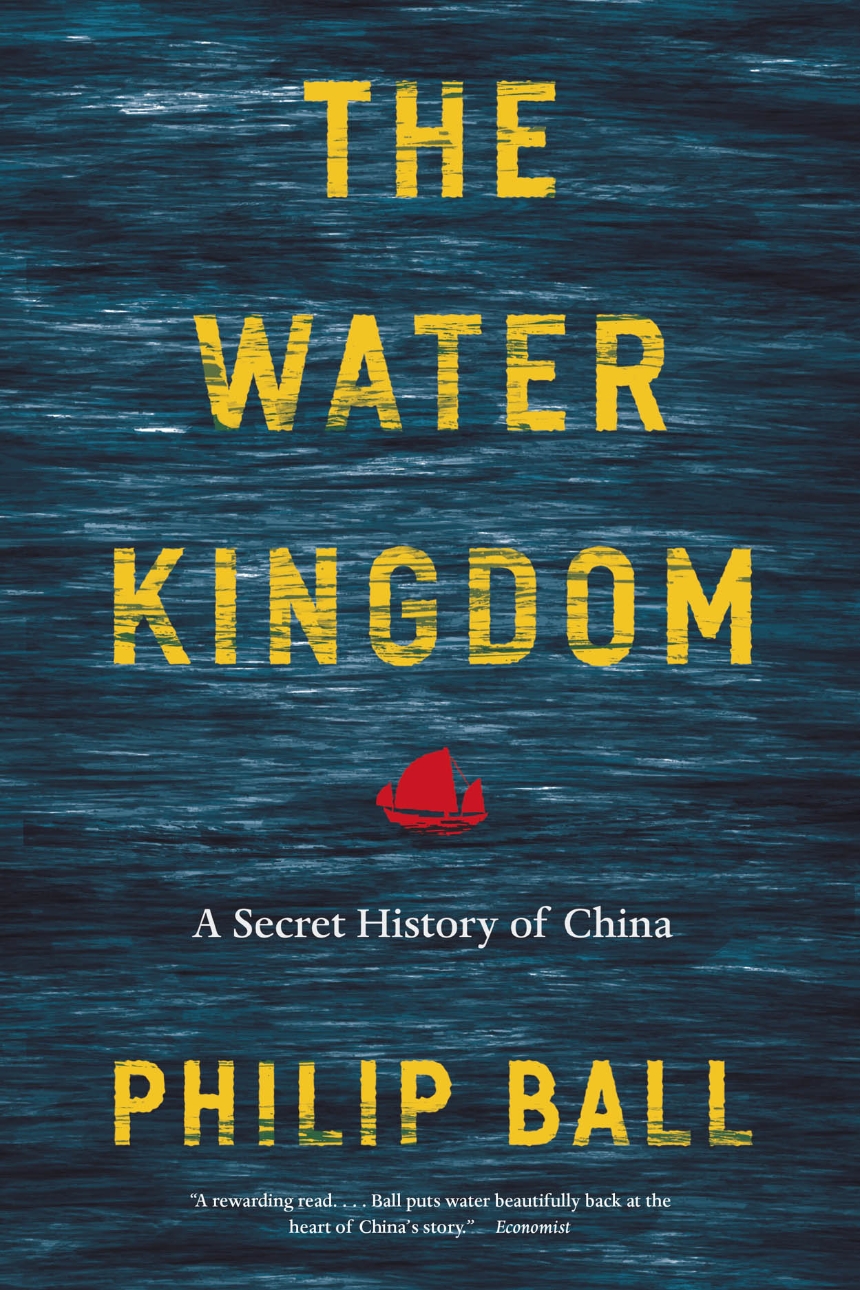The Water Kingdom
A Secret History of China
From the Yangtze to the Yellow River, China is traversed by great waterways, which have defined its politics and ways of life for centuries. Water has been so integral to China’s culture, economy, and growth and development that it provides a window on the whole sweep of Chinese history. In The Water Kingdom, renowned writer Philip Ball opens that window to offer an epic and powerful new way of thinking about Chinese civilization.
Water, Ball shows, is a key that unlocks much of Chinese culture. In The Water Kingdom, he takes us on a grand journey through China’s past and present, showing how the complexity and energy of the country and its history repeatedly come back to the challenges, opportunities, and inspiration provided by the waterways. Drawing on stories from travelers and explorers, poets and painters, bureaucrats and activists, all of whom have been influenced by an environment shaped and permeated by water, Ball explores how the ubiquitous relationship of the Chinese people to water has made it an enduring metaphor for philosophical thought and artistic expression. From the Han emperors to Mao, the ability to manage the waters ― to provide irrigation and defend against floods ― was a barometer of political legitimacy, often resulting in engineering works on a gigantic scale. It is a struggle that continues today, as the strain of economic growth on water resources may be the greatest threat to China’s future.
The Water Kingdom offers an unusual and fascinating history, uncovering just how much of China’s art, politics, and outlook have been defined by the links between humanity and nature.
Water, Ball shows, is a key that unlocks much of Chinese culture. In The Water Kingdom, he takes us on a grand journey through China’s past and present, showing how the complexity and energy of the country and its history repeatedly come back to the challenges, opportunities, and inspiration provided by the waterways. Drawing on stories from travelers and explorers, poets and painters, bureaucrats and activists, all of whom have been influenced by an environment shaped and permeated by water, Ball explores how the ubiquitous relationship of the Chinese people to water has made it an enduring metaphor for philosophical thought and artistic expression. From the Han emperors to Mao, the ability to manage the waters ― to provide irrigation and defend against floods ― was a barometer of political legitimacy, often resulting in engineering works on a gigantic scale. It is a struggle that continues today, as the strain of economic growth on water resources may be the greatest threat to China’s future.
The Water Kingdom offers an unusual and fascinating history, uncovering just how much of China’s art, politics, and outlook have been defined by the links between humanity and nature.
320 pages | 70 halftones, 26 line drawings | 6 x 9 | © 2017
History: Asian History, Environmental History, General History, History of Ideas
Reviews
Table of Contents
Introduction: Rain on the Summer Palace
1. The Great Rivers
Yangtze and Yellow: The Axes of China’s Geography
2. Out of the Water
The Myths and Origins of Ancient China
3. Finding the Way
Water as Source and Metaphor in Daoism and Confucianism
4. Channels of Power
How China’s Waterways Shaped its Political Landscape
5. Voyages of the Eunuch Admiral
How China Explored the World
6. Rise and Fall of the Hydraulic State
Taming the Waters by Bureaucracy
7. War on the Waters
Rivers and Lakes as Sites and Instruments of Conflict
8. Mao’s Dams
The Technocratic Vision of a New China
9. The Fluid Art of Expression
How Water Infuses Chinese Painting and Literature
10. Water and China’s Future
Threats, Promises and a New Dialogue
Acknowledgements
Picture Credits
Notes
Bibliography
Index
1. The Great Rivers
Yangtze and Yellow: The Axes of China’s Geography
2. Out of the Water
The Myths and Origins of Ancient China
3. Finding the Way
Water as Source and Metaphor in Daoism and Confucianism
4. Channels of Power
How China’s Waterways Shaped its Political Landscape
5. Voyages of the Eunuch Admiral
How China Explored the World
6. Rise and Fall of the Hydraulic State
Taming the Waters by Bureaucracy
7. War on the Waters
Rivers and Lakes as Sites and Instruments of Conflict
8. Mao’s Dams
The Technocratic Vision of a New China
9. The Fluid Art of Expression
How Water Infuses Chinese Painting and Literature
10. Water and China’s Future
Threats, Promises and a New Dialogue
Acknowledgements
Picture Credits
Notes
Bibliography
Index
